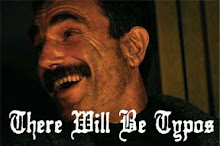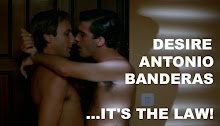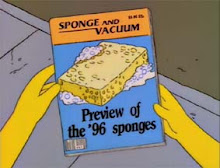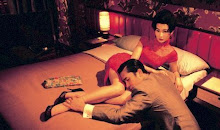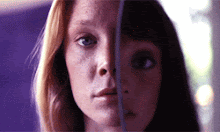Showing posts with label Tony Leung. Show all posts
Showing posts with label Tony Leung. Show all posts
Saturday, January 28, 2012
Wednesday, April 1, 2009
The Top (cough) Ten Movie Characters

In the revelatory hands of Gena Rowlands, we know Mabel's a bit off-balance, but we can't be sure what exactly is to blame for this potential madness. Her obvious adoration for her husband and children somehow seem stifled by the weight of her responsibilities and too much time alone, but so much remains raw in the backstory of Mabel's maternal breakdown. Her descent into emotional hell, and eventual return home, remains one of the most aching, devastating and wholly-formed portraits of domestic drama ever captured. Go ahead and try not to think of Mabel whenever you see a mother picking up her kids from school. Then try not to cry and have yourself committed.
Is it fair to include a woman with a split dream persona as a single character? Otherwise it would pretty much be Diane hanging out in her bathrobe and crying... But combine her personalities and this is definitely the girl. Naomi Watts and David Lynch meld forces to form a wide-eyed optimist as mysterious as a locked blue box. She arrives in the city of dreams an amateur actress and jitterbug champ from Deep River, Ontario, and leaves with a hit on her bisexual lover's deceitful head.
For her sweet to smoldering audition, her melancholy masturbation frenzy, her romance drowned in bad espresso, and her guilt-ridden final rest; Betty/Diane is a fractured, funneled bit of innovation that somehow resonates more in all its abstraction. With her purity and innocence drained, Betty/Diane becomes another starlet lost to the Hollywood hills of obscurity; her dreams dashed against the wall behind a Winkies on Sunset Boulevard.
 Millie Lammoreaux
Millie Lammoreaux(3 Women)
Millie's aim to be thoroughly modern seems to distance everyone around her. She prattles on aimlessly to anyone listening (or not) about magazine articles, recipes, home decor, and her ideas on how to sway a man in the go-go seventies. She's hyper-opinionated and just plain hyper. Shelley Duvall creates so perfectly every little nuance and nitpick of Millie's often-solitary self. As her identity eventually starts to meld/dissolve with her superfan Pinky Rose, Millie's prideful personality gives way to something dark, eerie and ambiguous. So much for her trademark "pigs in a blanket and chocolate puddin' tarts!"
 Chow Mo-wan
Chow Mo-wan (In the Mood for Love / 2046)
It's as if all of Chow's lust, longing and loss can be channeled through a millisecond of Tony Leung's affected gaze. His emotions hover over these films like the wafting fog of a chain-smoking binge. In the Mood for Love sees his passions for neighbor Su Li-zhen utterly ignite, just as quickly as they drift into being the sad memories of a divine love lost to the past. Chow's transformation into a closed-off playboy in 2046 only accentuates and echoes his still empty desires, and refusal to commit to another love that would only dissipate with time. So much beautiful and unspoken emotion for a male character, and so much beauty in Tony Leung.
"How au courant!" Realistically any of Edith Massey's unhinged characters could merit a spot, but her turn as maid/socialite/best friend Cuddles Kovinsky might just be her most quotable and comically outstanding creation. Cuddles is at the top of the world with her debutante ball coming up, but she still finds time for her friend's AA meetings during her introduction into high society. So hysterical, I can only direct you to this post made in my endless adoration. Hurry, Heintz! Hurry!
(Waiting for Guffman)
Because no man does regional theatre with quite the same passion and flair as Corky St. Clair and still finds the time to buy all his wife's clothes.
Julianne Moore has her share of characters I'd happily mention (Carol White in Safe, Cathy Whitaker in Far from Heaven), but as Nat put so eloquently in his Top 10 Characters, Amber Waves is the foxiest bitch in the whole world. This was the role where Julianne Moore became something more. To steal from her own loving ode to Dirk Diggler: Amber is a woman of passion and mystery. She is a woman of lust.
What she does for the word "cock" is more than most actresses do with entire monologues. A porn legend and flailing mother whose passions and pathos are channeled by her soft voice and veiled tears behind the courthouse -- Amber makes such sensual waves as she tries to keep her head above water.
Patrick's got a body to die for, and unfortunately for many hookers and models in the eighties, such was the case. If you were to take unquestioningly from his subtly off-white business card, you'd think Patrick was the ideal yuppie man. He loves Phil Collins and Whitney Houston, enjoys a night in with The Texas Chain Saw Massacre or Inside Lydia's Ass, and he takes note of real world issues like apartheid and the homeless. The whole serial murder thing still casts a pall perhaps, but the comforting thing is that it might just be all in his head. Comforting like a kitten... being fed to an ATM.

Quite the quality characters, those eight. Sorry to cut the Top Ten so short...
I'm meeting Cliff Huxtable at the Four Seasons and then I have to return some videotapes.
Tuesday, November 4, 2008
Obscure Beauty: In the Mood for Love (2001)
Tuesday, September 9, 2008
UR So Gay and You Don't Even Like Online Polls
Here are five films that didn't crack the list and that are just too astounding to pass by. You may not find them at Blockbuster, but this is the age of Netflix and internet piracy, so queue it or steal it. Better yet, buy them with money you've earned by returning your copy of Another Gay Movie.

Come Undone
(Presque Rien)
(Presque Rien)
If there must be a coming out film on this list, it best be from the French. No preaching, no shouting matches, and no falsely sentimental endings. Come Undone is all about the mood of self discovery and conflicted first love. For Mathieu (Jérémie Elkaim) it becomes an issue of finding himself amidst his desires for the more open Cédric (Stéphane Rideau), as well as some troubling family drama. But drama is hardly the focus in this film, in fact it largely avoids those big moments in pursuit of something far more subdued and atmospheric. The official "coming out scene" is so passingly subtle that it exists merely as a stage of Mathieu's often dark emotional transition. It contrasts well with the sunlit warmth of his escalating feelings for Cédric and their exploratory summer romance. Talented director Sébastien Lifshitz cuts between these two tones to form an ambiguity very much in keeping with Mathieu's internal struggle. Compared to most American fare it's quite sparse and ambient, and that's precisely what gives the film its naturalism. Equal to that is the film's frank sexuality, especially notable in a scene where Mathieu and Cédric take to each other passionately in the dunes. Stéphane Rideau is a wonderfully sexy presence here as well, making the swooning desire all the more palpable.

Law of Desire
(La Ley del deseo)
(La Ley del deseo)
Pedro Almodóvar's equally masterful Bad Education did manage to get honored, but this less available film from the gay Spanish auteur officially cemented his place in queer cinema. Part of the charm of Bad Education is the reflexive nature of Almodóvar's work, and this film acts as somewhat of a precursor to that. The story follows queer director Pablo Quintero (Eusebio Poncela) as he becomes the object of desire for a young fan, Antonio Benítez, played by a smoldering Antonio Banderas. Antonio's endearing nature and inexperience has Pablo quickly warming to him, but Antonio's intense feelings of first love mean taking drastic measures when he finds that Pablo has eyes for someone else. Almodóvar shows his usual talent for rich, unusual love stories and passionate, involving characters. The plot turns are nothing revelatory, but the motivations and complications are effortlessly thoughtful and compelling. It's beautiful work on all fronts, even taking in a notably progressive transgender character, played to perfection by Almodóvar regular Carmen Maura.

Lai Yiu-fai (Tony Leung) and Ho Po-wing (Leslie Cheung) are off and on lovers whose worlds constantly converge and break away in this beautiful and expressive film from Wong Kar Wai, who knows a thing or two about sensuous romance. Kar Wai uses a unique process as a director in which he lets the story evolve and change completely during filming. It allows him to find the greatest truth in his characters and their relationships to form naturally. The outcome is as much a surprise to him as it is to the audience, and perhaps that's why this love story feels so honest and so innovative. Yiu-fai and Po-wing aren't the typical couple cinematically speaking, but their constant battling crossed with their invested need for one another is very typical of real life couples. Happy Together is gorgeous, organic and longing in a way so few relationship films are, especially ones that just happen to be about two men.
 "I worry that you'll work in an office, have children, celebrate wedding anniversaries... The world of a heterosexual is a sick and boring life!"
"I worry that you'll work in an office, have children, celebrate wedding anniversaries... The world of a heterosexual is a sick and boring life!"It's scandalous that not one John Waters movie cracked the list! I'm hoping it's that none of his films are overtly about gay relationships and not that gay audiences haven't sought out his work. Pink Flamingos and Female Trouble are two of his most raucous and reprehensible masterpieces, and Waters influence on queer and underground cinema must be acknowledged. He manages to make absolutely everything subversive, including having drag queen Divine play both the naughty Dawn Davenport and her repugnant rapist. Likewise there's the lovable Aunt Ida (played by the incomparable Edith Massey) persistently urging her nephew to stop being straight, "Queers are just better. I'd be so proud if you was a fag and had a nice beautician boyfriend. I'd never have to worry!" It's hilarious and refreshingly unfiltered. Being crude is one thing, but Waters has the wit to back it up.

Fox and His Friends
(Faustrecht der Freiheit)
(Faustrecht der Freiheit)
Rainer Werner Fassbinder always tackles complex characters and socially relevant themes, and this one is an especially powerful cautionary tale starring Fassbinder himself in the lead. He plays Franz Bieberkopf, nicknamed 'Fox', a gay carnival worker whose desire to transcend his station ultimately pushes him lower than ever before. Fox buys lottery tickets in hopes of making it big, especially since he has to steal or borrow just to get money for the ticket. A chance encounter leads him into the arms of some wealthy and elite gay men who happily feed off Fox once his luck finally cashes in. For a 1975 release date it's a remarkably rounded portrayal of gay characters, both good and bad, which is an immense rarity even for modern releases.

Also missing from the list, perhaps not surprisingly, were any documentaries of value to gay audiences. Upon finally sitting down with The Times of Harvey Milk this last week, I was astounded at just how moving and impactful the life of this legendary activist still is. Harvey Milk's legacy will soon come into focus once again with Gus Van Sant's biopic Milk, but it would be a difficult feat to match this documentary, which will light a fire in the heart of anyone passionate about gay rights.
Additionally, there was no mention of The Celluloid Closet, which gives a worthwhile look at gay cinematic history. I'm actually partial to this compilation I found online called The Lavender Lens. It forms its narrative solely through the editing and takes us through gay representation since the beginning of cinema with clips that are surprising, funny and often unbelievable. A must see.
Get to watching these now if you haven't already had the pleasure. And if you have, write up your own list bitching about the great gay films left off mine.
Saturday, September 6, 2008
Inanimate Therapy with Tony Leung
Wednesday, May 28, 2008
Save Tony Lung
It was just the other day that I noticed this subtle cinematic touch: In the Mood for Love shows Tony Leung's character Chow gazing out through his office window, lost in his feelings for Su Li-zhen. While in 2046 we see Chow now looking in through that very same office window, distanced but still lost in those feelings that linger like smoke. I love finding those kinds of heart wrenching nuances on second viewings, and they're plentiful in these films.
My theory is that Tony Leung was placed into films by the big tobacco industry. He just makes it look so good! Then again, Wong Kar-Wai could make coughing up a lung look absolutely exquisite.




What is it about smoky atmosphere that conjures up such sensuous longing? Well Wong Kar-Wai gets it. Cigarettes are like a perfect union between his solitary souls, or fallen angels. What some would consider a bad habit becomes a revealing character trait in his hands; tracing the repetition, the delayed exhale, and the slow burn of inescapable emotions.





My theory is that Tony Leung was placed into films by the big tobacco industry. He just makes it look so good! Then again, Wong Kar-Wai could make coughing up a lung look absolutely exquisite.




What is it about smoky atmosphere that conjures up such sensuous longing? Well Wong Kar-Wai gets it. Cigarettes are like a perfect union between his solitary souls, or fallen angels. What some would consider a bad habit becomes a revealing character trait in his hands; tracing the repetition, the delayed exhale, and the slow burn of inescapable emotions.





Note: I do not advocate smoking unless accompanied by a great cinematographer.
Subscribe to:
Posts (Atom)


























